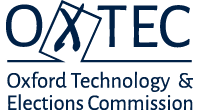Self-regulation of social media platforms failing to curb disinformation, says new report
A new report from the Oxford Technology and Elections Commission (OxTEC) has found many of the self-regulatory measures taken by social media platforms have failed to prevent the spread of disinformation.
‘The Market of Disinformation’, a report produced by cyber intelligence specialists Oxford Information Labs on behalf of OxTEC, examines the impact of algorithmic changes made by social media platforms, designed to curb the spread of disinformation, through the lens of digital marketing.
The report highlights some of the techniques used by campaigners to attract, retain and persuade online audiences. It also sets out recommendations for the UK Electoral Commission.
Key findings:
- Despite over 125 announcements in three years aimed at demoting disinformation and junk news, algorithmic changes made by platforms like Facebook, Google, and Twitter have not significantly altered brands’ and companies digital marketing
- Election campaigns continue to generate a significant amount of organic engagement, with people typically accessing content that has not been supported by paid placement
- Political campaigns blend paid and organic material to maximise reach and minimise spend
- There has been growth in digital marketing techniques combining online and offline data to reach specific audiences
Stacie Hoffmann, cyber security and policy expert at Oxford Information Labs, said:
“Today’s successful online campaigns effectively blend organic and paid-for elements, standing or falling by the levels of engagement they provoke amongst users. Self-regulation of social media platforms has only succeeded in achieving higher profits for the platforms by reducing organic reach and increasing the amount of paid content required by advertisers to reach new audiences.”
Professor Philip Howard, Director of the Oxford Internet Institute (OII) and Chair of the OxTEC Commission, said:
“The report highlights how the algorithmic changes made by social media platforms have been inadequate in curbing the spread of low-quality content online. Those actors spreading disinformation have quickly identified algorithmic changes and have adjusted their strategies accordingly. Fundamentally self-regulation by social media platforms has failed to achieve the promised public policy benefit of improving the quality of the information ecosystem”.
The Oxford Information Labs report also sets out a series of recommendations for consideration by OxTEC on how to protect the integrity of elections. The recommendations are based on developing and implementing guidance related to four distinct areas, digital imprints, sanctions, financial reporting and campaign spend, foreign interference and location verification.
OxTEC, convened by the Oxford Internet Institute at the University of Oxford, consists of academics, researchers, technology experts and policymakers, and was established to explore how to protect the integrity of democracy in a digital age. It is due to publish a full report later in October 2019
For more information please contact call +44 (0)1865 287 210 or contact press@oii.ox.ac.uk.
Notes to Editors
About the report
The report draws on a combination of desk research and semi-structured interviews with nine experts spanning the private, public and civil society sectors.
About OxTEC
The Oxford Technology and Elections Commission, OxTEC, is uniting experts on politics, technology, security and human rights to re-envision what constitutes trusted guidelines for managing a modern election. With the help of policy makers, elections administrators, and both computer and social scientists, OxTEC is exploring how democracies can integrate democratic norms and practices into the use of information technologies, social media, and big data during campaigns, with the goal of protecting the integrity of elections. The OxTEC commissioners are: Mohamed Amersi, Founder & CEO of Emergent Telecom Ventures; Christina Blacklaws, 2018/9 President of The Law Society of England and Wales; Dame Helen Ghosh, former Permanent Secretary at the Home Office; Professor Philip Howard, Director of the OII; and Paddy McGuinness, Senior Adviser at the Brunswick Group and the UK’s Deputy National Security Adviser from 2014-2018. Award-winning lawyer Ravi Naik, a partner at Irvine Thanvi Natas Solicitors who led the first legal case against Cambridge Analytica, and Emily Taylor, an associate fellow with the International Security Department, are among the Commission’s researchers.
About the Oxford Internet Institute (OII)
The Oxford Internet Institute (OII) is a multidisciplinary research and teaching department of the University of Oxford, dedicated to the social science of the Internet. Drawing from many different disciplines, the OII works to understand how individual and collective behaviour online shapes our social, economic and political world. Since its founding in 2001, research from the OII has had a significant impact on policy debate, formulation and implementation around the globe, as well as a secondary impact on people’s wellbeing, safety and understanding. Drawing on many different disciplines, the OII takes a combined approach to tackling society’s big questions, with the aim of positively shaping the development of the digital world for the public good.
